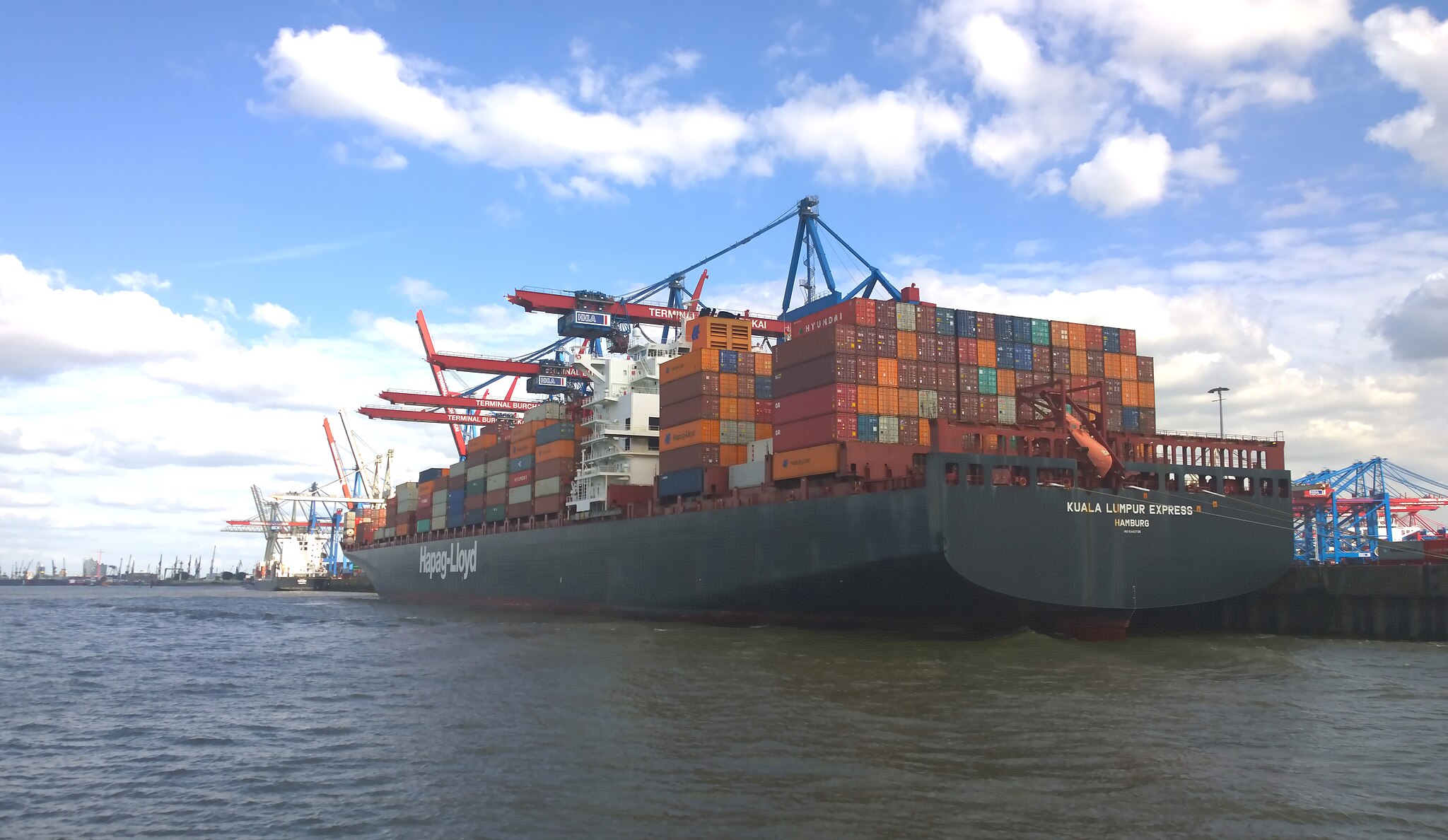Hapag-Lloyd: Red Sea Route Remains High-Risk
Posted by Emma on 28th Dec 2023 Reading Time:
Despite international efforts to secure the Suez Canal, Hapag-Lloyd, a global shipping leader, persists in avoiding this critical trade route. Citing safety concerns amidst the ongoing conflict, the company prioritises alternate paths.
 Shotbyp4ul, CC BY-SA 4.0, via Wikimedia Commons
Shotbyp4ul, CC BY-SA 4.0, via Wikimedia Commons
Yemen's Houthi rebels, involved in the Israel-Gaza conflict, have threatened to target vessels heading towards Israel. This threat has led various shipping companies to forgo the Red Sea route. Danish shipping giant Maersk, however, plans to resume its operations in the area.
Germany-based Hapag-Lloyd, ranking fifth worldwide in shipping capacity, emphasises the Red Sea's risk, preferring the longer Cape of Good Hope route. The company will revisit its decision this Friday.
The Red Sea's strategic position, bordered by Yemen to the south, has witnessed drone and rocket attacks by Houthi rebels. The US-led coalition Prosperity Guardian aims to safeguard commercial ships. This heightened security follows an attack on a Mediterranean Shipping Company (MSC) vessel, which fortunately reported no crew injuries.
The Suez Canal's significance in global trade, especially for consumer goods, oil, and gas, can't be overstated. Diverting via the Cape of Good Hope adds approximately 3,500 nautical miles, potentially disrupting supply chains and increasing prices.
Companies like Ikea and BP have already felt the impact, with Ikea facing product delays and BP halting shipments through the Red Sea. Maersk acknowledges the persistent risk and is ready to adapt if necessary for crew safety.
Hapag-Lloyd reports that around 25 of its ships are currently rerouted, affecting delivery times to various regions. The delay ranges from 18 days for eastern Mediterranean destinations to 7 days for the US East Coast.
 Hummelhummel, CC BY-SA 3.0, via Wikimedia Commons
Hummelhummel, CC BY-SA 3.0, via Wikimedia Commons
While firms like France's CMA CGM and Maersk are cautiously considering a return to the route, the ongoing turmoil poses significant economic challenges, particularly for Egypt. Analyst Mohamed Ata highlights Egypt's reliance on the Suez Canal for foreign currency, emphasising the canal's disruptions' severe impact during a global recession.
Your thoughts matter. Please share your insights on Hapag-Lloyd's decision and its impact on global trade in the comments below.

